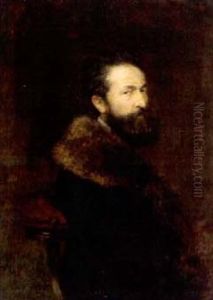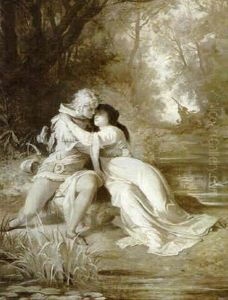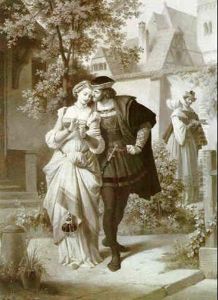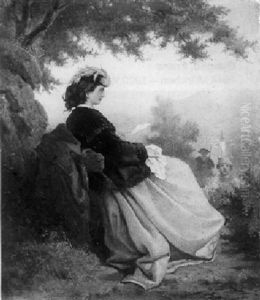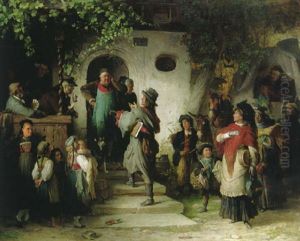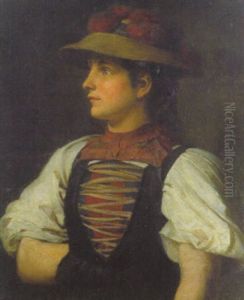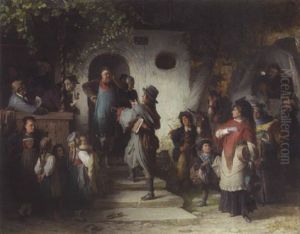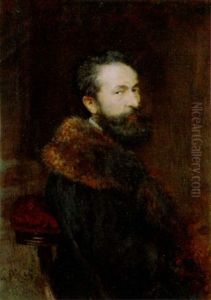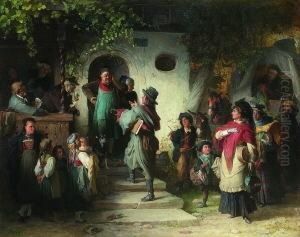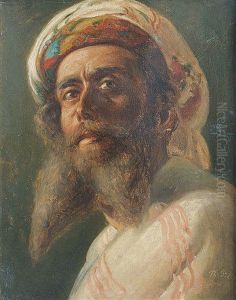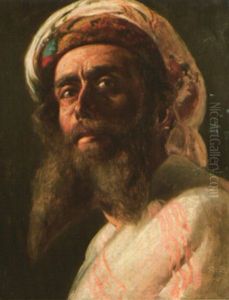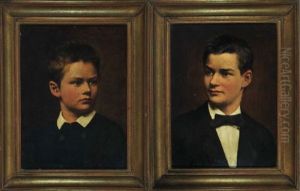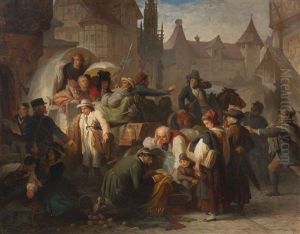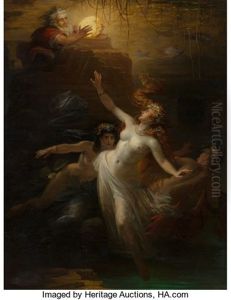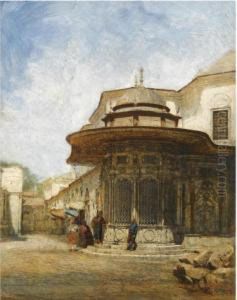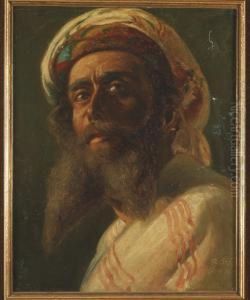Theodor Pixis Paintings
Theodor Pixis was a German pianist and composer, born in Munich in 1831 into a family with strong musical roots. His father, Johann Peter Pixis, was a renowned violinist and composer, which undoubtedly influenced Theodor's early and profound exposure to music. Despite the prominence of his father, Theodor Pixis carved out his own path in the music world, showcasing a remarkable talent for both piano performance and composition from a young age.
Pixis's musical education was comprehensive and grounded in the rich musical traditions of Germany. He studied under some of the most distinguished musicians of his time, which helped him develop a refined and expressive musical style. As a pianist, Pixis was celebrated for his technical proficiency and emotive playing, qualities that endeared him to audiences across Europe. His concert tours were widely successful, and he performed in many of the continent's major musical centers, establishing himself as a prominent figure in the Romantic era of classical music.
As a composer, Theodor Pixis contributed a variety of works to the musical repertoire, including pieces for piano, chamber music, and vocal compositions. His style was characterized by its lyricism and the integration of romantic musical elements, which reflected the broader trends in German music of the time. However, despite his talent and the initial popularity of some of his works, Pixis's compositions did not achieve the lasting recognition of those by some of his contemporaries. Today, he is largely remembered for his prowess as a performer rather than as a composer.
Pixis's career was also marked by his involvement in the musical communities of the cities in which he lived, contributing to the cultural life of places like Munich and Paris. He was known to collaborate with other musicians, and his contributions to musical performances and events helped to foster a vibrant musical culture.
Theodor Pixis passed away in 1907, leaving behind a legacy that, while somewhat overshadowed by other luminaries of his time, reflects the rich musical traditions of 19th-century Germany. His life and work offer insight into the world of Romantic music, highlighting the blend of virtuosic performance and compositional creativity that defined the era.
